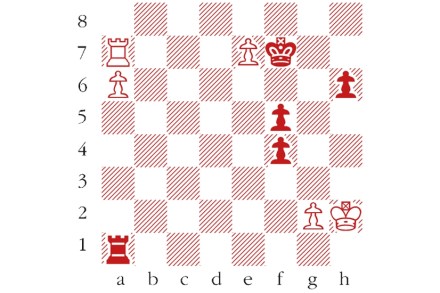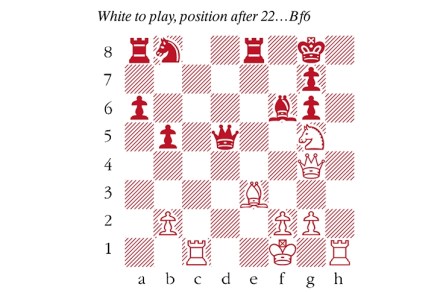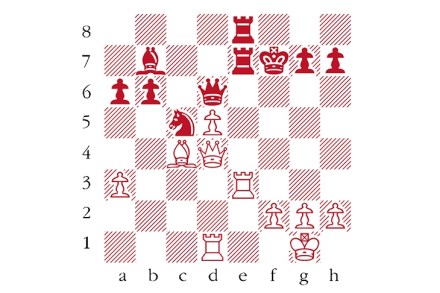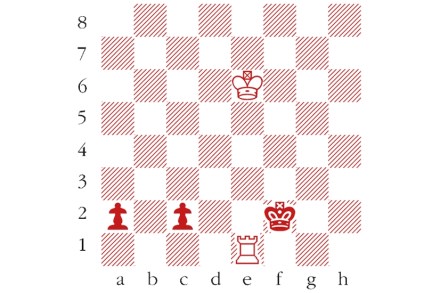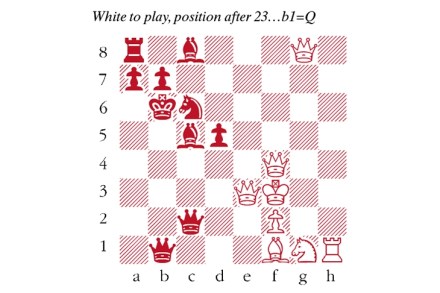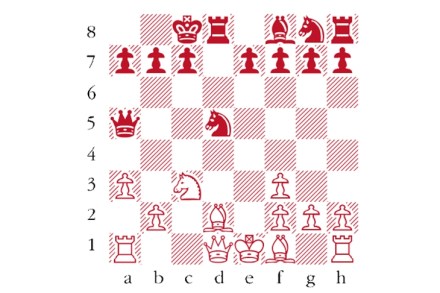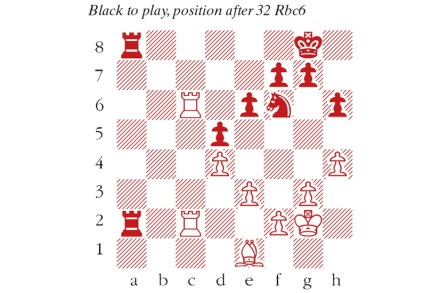No. 615
White to play. Stockfish–Leela Chess Zero, TCEC 18, Game 92, July 2020. It looks hard to make progress, despite the far advanced pawns. What was Stockfish’s winning move? Answers should be emailed to chess@spectator.co.uk by Monday 3 August. There is a prize of £20 for the first correct answer out of a hat. Please include
